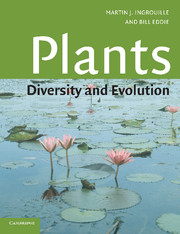Book contents
Chapter 8 - Knowing plants
Published online by Cambridge University Press: 05 June 2012
Summary
Knowledge is ‘seeing’ this vital meaning behind the appearance of things. It is penetrating the mystery of life. Thus, it is only through this process of learning ‘to see’ that we come to know ourselves.
Socrates, 469–399 bceThe emergence of scientific botany
The study of plants must be one of the oldest occupations of humans who, even in their most primitive state, required a wide knowledge of the plants that provided food or remedies for illness. By trial and error they knew which plants were poisonous and which were edible. This expertise led to the first sowing of wild seeds, the start of agriculture and therefore the beginning of civilisation. The earliest classification systems were utilitarian ‘common-sense’ classifications but could be extremely sophisticated. The Mayan folk classification of plants, for example, is no less systematic than the latest scientific classifications based largely on analyses of DNA sequences.
The long history of botany is a record of our attempts to describe and understand plants. This is not as straightforward as it might seem. Even a simple term such as ‘leaf’ can be interpreted in several ways and its meaning depends upon the context of its use. A concept such as species is more complex.
It is common for new botany students to complain about the number of terms, names and concepts they have to learn. Botany uses language in which the things are, in a sense, ‘created’ by the words we use to describe them.
- Type
- Chapter
- Information
- PlantsDiversity and Evolution, pp. 371 - 425Publisher: Cambridge University PressPrint publication year: 2006



